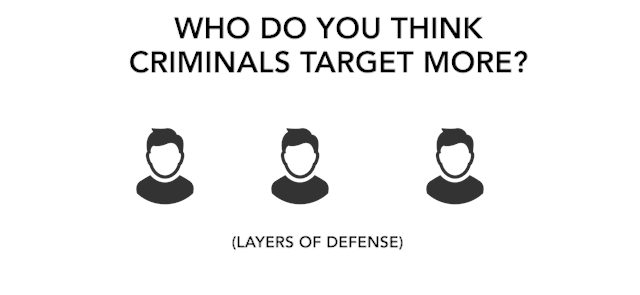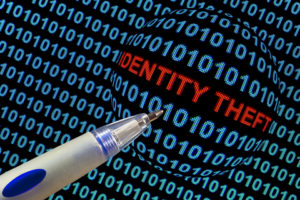Six Websites to Fortify Your Identity To Protect You From Fraud: A Comprehensive Guide
If you’ve been considering a credit freeze, you should know that this process is designed to prevent creditors from accessing your credit report unless you explicitly authorize it. This effectively blocks potential creditors from viewing or pulling your file, making it significantly more difficult for identity thieves to apply for new credit in your name or using your information.
Act Now: Freeze Your Credit Before It’s Too Late!
A credit freeze is a powerful tool that locks down your credit report. This means lenders can’t access your credit score, rendering your Social Security number and credit rating useless. Essentially, it prevents identity thieves from using your information to open new lines of credit.
If your identity is compromised, a credit freeze can significantly hinder a thief’s ability to exploit your personal information. By freezing your credit, you’re making it much harder for them to access your credit file.
When you need to apply for new credit, simply unfreeze your credit file using a PIN provided by the credit bureau. This process is easy and free for everyone, including children.
Why You Should Freeze Your Credit
Freezing your credit is a proactive step to protect your identity. It’s a simple process that can significantly hinder identity thieves. By freezing your credit, you effectively lock down your credit report, making it inaccessible to potential fraudsters.
The Cost of Freezing Your Credit
The best part? It’s absolutely free! There’s no reason to delay this crucial security measure.
The Convenience of a Credit Freeze
While you’ll need to temporarily lift the freeze when applying for new credit, the process is quick and easy. It typically takes just a few minutes to freeze or unfreeze your credit. Think of it as a small inconvenience for a significant benefit.
The Impact on Your Credit Score
A credit freeze has no impact on your credit score. It simply prevents unauthorized access to your credit report. Existing creditors can still perform “soft” credit checks, which don’t affect your score.
The Limitations of a Fraud Alert
A fraud alert is a less effective option. It only lasts for a year and doesn’t prevent identity thieves from accessing your credit report. While it may alert lenders to potential fraud, it doesn’t guarantee protection. A credit freeze, on the other hand, provides a more robust safeguard against identity theft.
Where You Can Go to Freeze Your Credit:
To freeze your credit with Equifax, click here.
To freeze your credit with Experian, click here.
To freeze your credit with Trans Union, click here.
Innovis Credit Freeze
Innovis is the 4th credit bureau you need to freeze with. The process is similar to the big three and its free. Go here to freeze your Innovis Credit Freeze.
National Consumer Telecommunications and Utilities Exchange or NCTUE
One critical area to consider when protecting your identity is the National Consumer Telecommunications and Utilities Exchange (NCTUE). Many mobile phone companies utilize this organization for credit checks, meaning identity thieves could still open accounts in your name, even if your credit is frozen with the major credit bureaus.
While primarily used by mobile phone companies, other utilities like water, power, and cable may also access your information through NCTUE. To protect yourself, you can contact NCTUE directly to place a security freeze on your account. You’ll need to provide your Social Security number and verify additional information, but the process is usually automated and straightforward. Once verified, your NCTUE credit report will be frozen, adding an extra layer of security to your identity protection strategy. You can also get your NCTUE credit report and risk score by calling their 800-number 1-866-349-5355 or try to do it online here NCTUE Freeze but some say this links form doesn’t work well.
Protecting Yourself with ChexSystems
Another important step in safeguarding your identity is to place a security alert with ChexSystems. This consumer reporting agency is used by banks to assess the creditworthiness of individuals applying for checking and savings accounts. By freezing your ChexSystems report, you can prevent unauthorized access to your financial information and protect yourself from identity theft.
It’s important to note that a ChexSystems freeze only applies to your report with this specific agency. To fully protect your identity, you’ll need to take additional steps to freeze your credit with the major credit bureaus. For ChexSystems, you can do it here: ChexSystems Security Freeze.
Opt-Out Prescreen
You can additionally opt out of any pre-approved credit offers by calling 1-888-5-OPT-OUT or you can go online and visit the website Optoutprescreen.com.
myE-Verify Self-Lock via the Department of Homeland Security
Another crucial step in protecting your identity is to utilize the Self Lock service provided by the Department of Homeland Security. This tool helps prevent employment-related fraud by locking your Social Security number. By doing so, you can deter individuals from using your information to obtain employment.
When a locked Social Security number is entered into the system, it triggers a mismatch, indicating potential fraud. Locking your identity through Self Lock is a simple process, and the lock remains in place for a year. You can easily renew the lock annually to maintain ongoing protection. Self-Lock Freeze.
Protecting Yourself from Social Security Fraud
To further safeguard your identity, consider creating an account with the Social Security Administration. This will help prevent fraudsters from accessing your benefits and sensitive information. By establishing an account, you can monitor your earnings record, estimate future benefits, and receive important updates.
If you receive suspicious calls, emails, or mail claiming to be from the Social Security Administration, you can verify their legitimacy by contacting the agency directly through your online account or by calling the official Social Security number. Remember, the Social Security Administration will never threaten you with arrest or demand immediate payment. You can do it online, Social Security Administration Set-up.
Freezing your credit is a powerful tool to protect your identity. By locking your credit report, you make it significantly more difficult for identity thieves to open new accounts in your name. This proactive step can save you time, money, and stress in the long run.
Robert Siciliano CSP, CSI, CITRMS is a security expert and private investigator with 30+ years experience, #1 Best Selling Amazon author of 5 books, and the architect of the CSI Protection certification; a Cyber Social Identity and Personal Protection security awareness training program. He is a frequent speaker and media commentator, and CEO of Safr.Me and Head Trainer at ProtectNowLLC.com.

 According to the U.S. Federal Trade Commission, in 2020, there were about 2.1 million fraud reports, and many of these were for the purpose of stealing another person’s identity.
According to the U.S. Federal Trade Commission, in 2020, there were about 2.1 million fraud reports, and many of these were for the purpose of stealing another person’s identity. These crooks violate their trust and take advantage of their ignorance of the online world. People over 50 also tend to have more money and savings including retirement funds.
These crooks violate their trust and take advantage of their ignorance of the online world. People over 50 also tend to have more money and savings including retirement funds.
 You might be wondering how you can become a victim of an identity thief just by filing your taxes. There are a couple of ways scammers do this. First, the thief will use your Social Security number to file taxes, but plug in their mailing address and then when your refund comes around, they take your refund.
You might be wondering how you can become a victim of an identity thief just by filing your taxes. There are a couple of ways scammers do this. First, the thief will use your Social Security number to file taxes, but plug in their mailing address and then when your refund comes around, they take your refund.



 How Does This Happen?
How Does This Happen?























